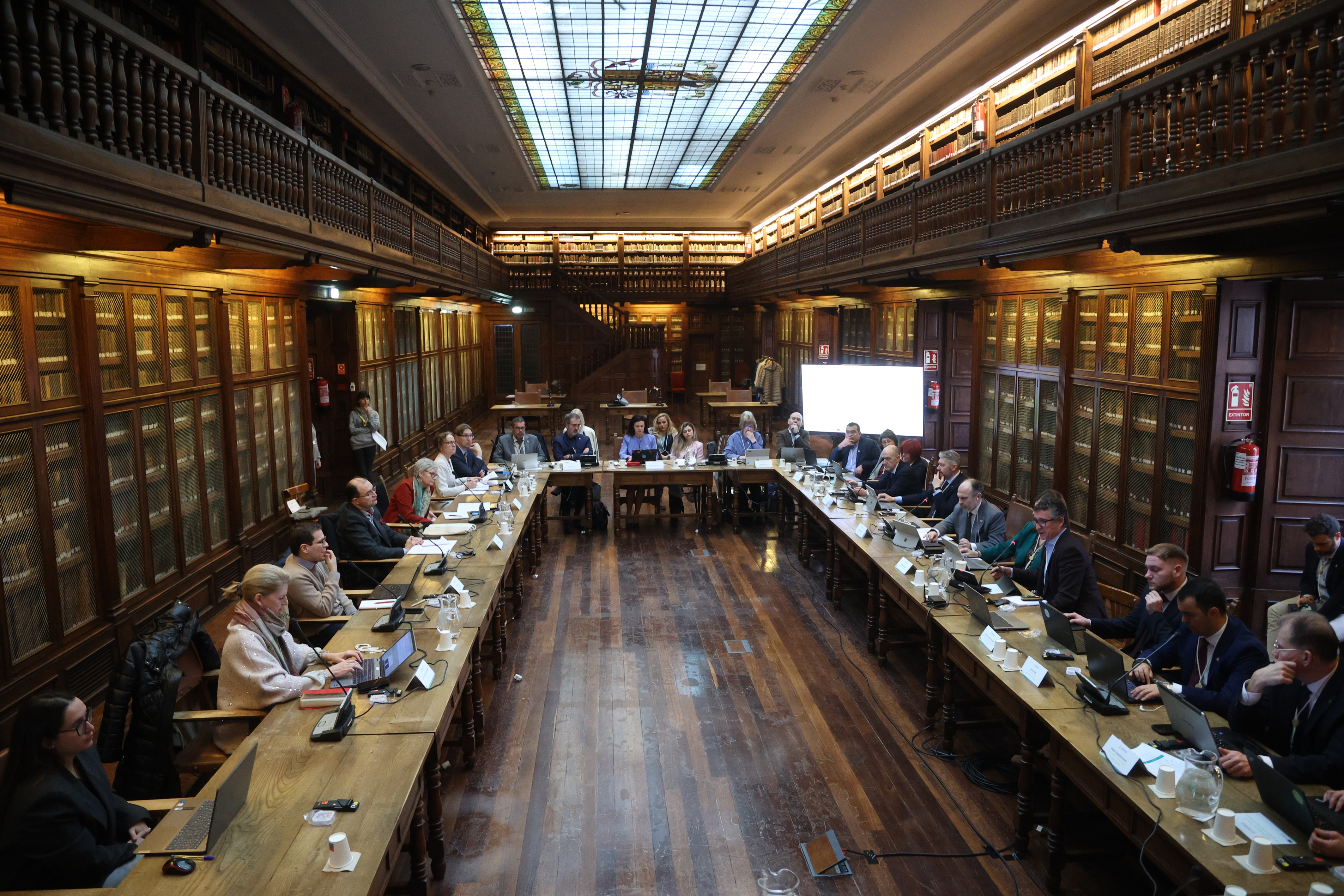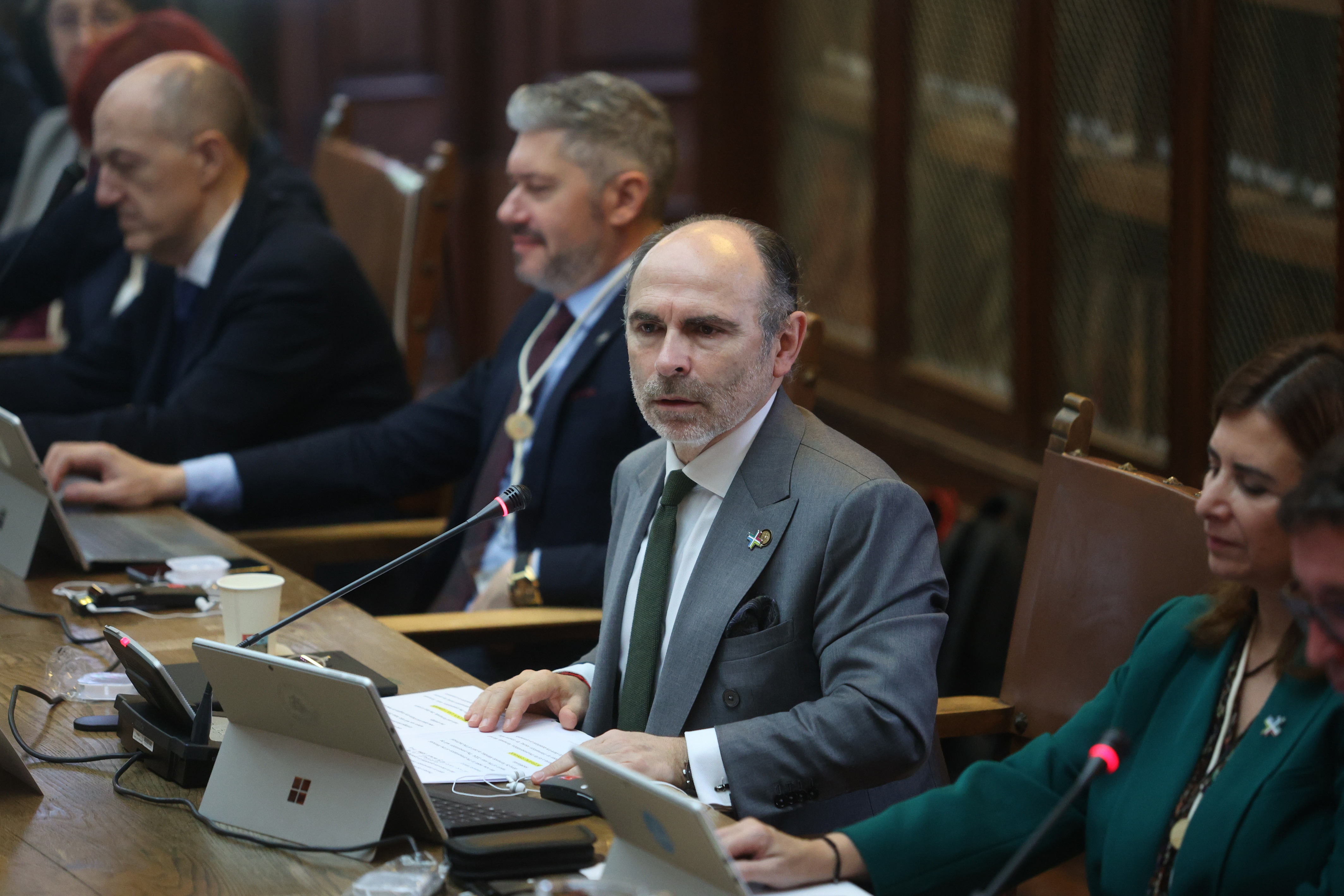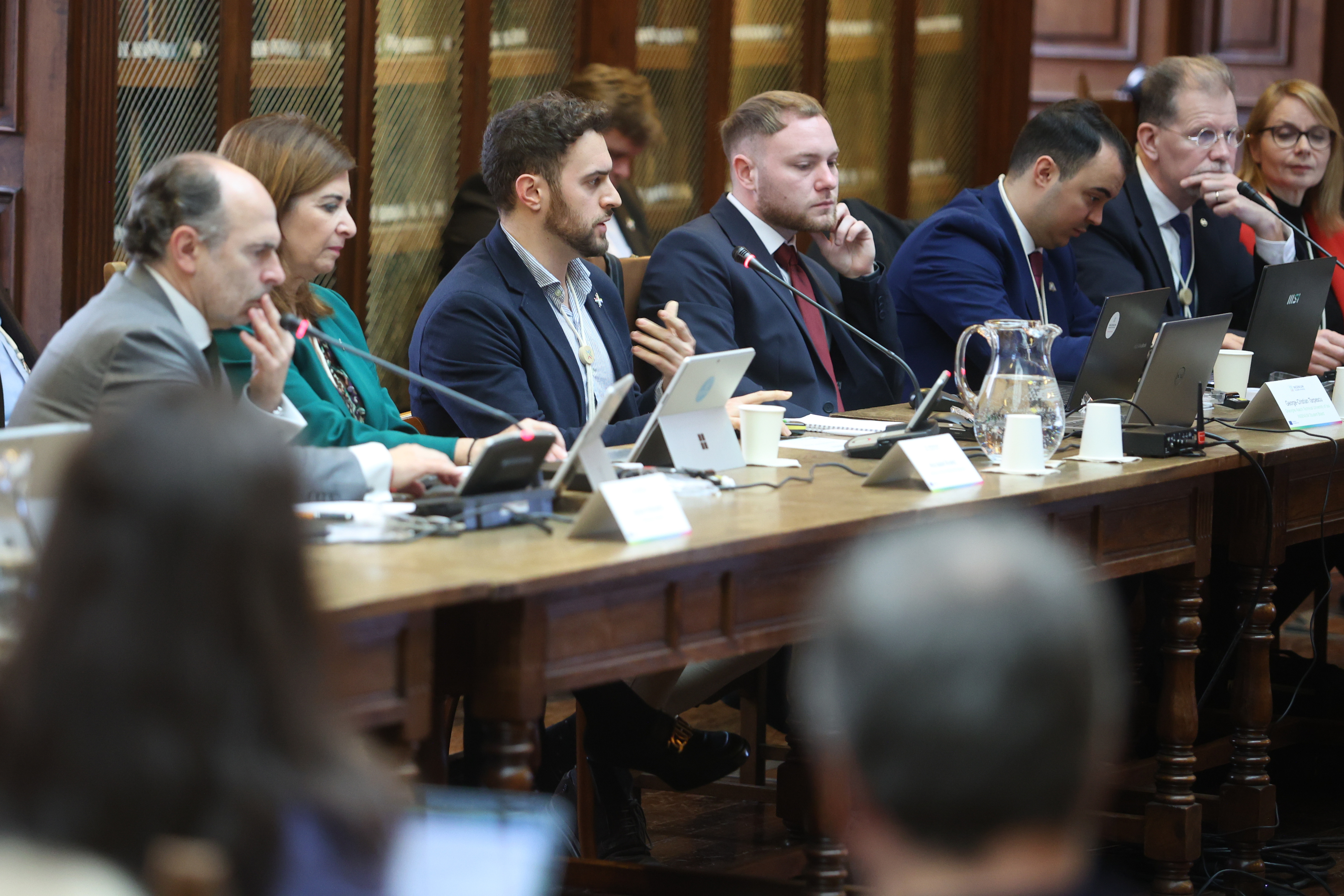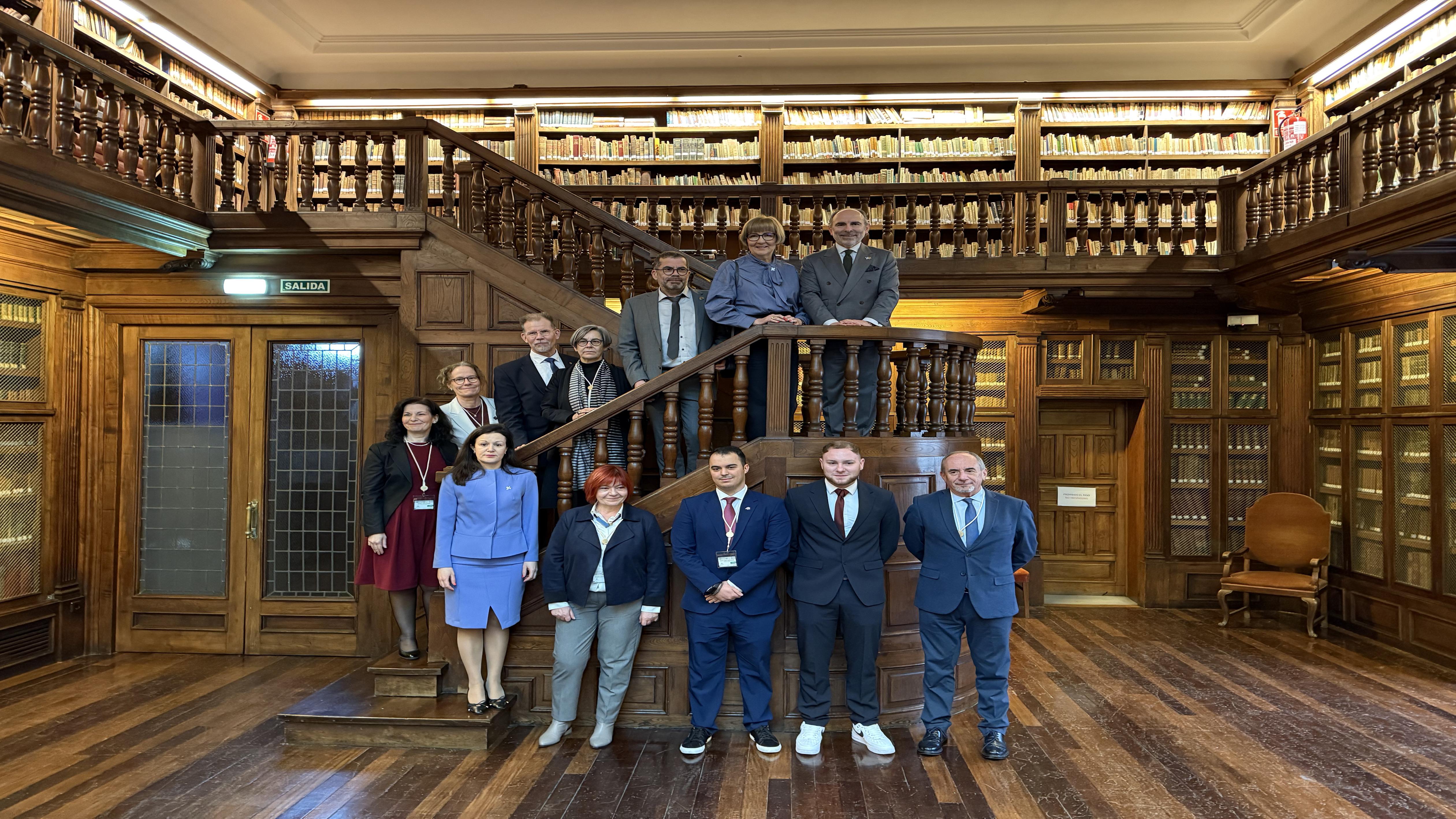Why INGENIUM Is Establishing a European Grouping of Territorial Cooperation (EGTC)
From Pescara to Oviedo: The INGENIUM Alliance Council Drives EGTC Forward
The decision to establish a European Grouping of Territorial Cooperation (EGTC) as the legal structure for the INGENIUM Alliance follows key resolutions from the two most recent Alliance Council meetings, the highest decision-making body of INGENIUM.
The first, held in Pescara, Italy, in October 2024, selected the EGTC as the preferred legal framework; the second, convened in Oviedo from 25–27 February 2025 alongside the fourth INGENIUM Senior Winter School, agreed to locate the EGTC headquarters at the South-Eastern Finland University of Applied Sciences (Xamk).
These decisions initiated the preparatory phase for INGENIUM’s transformation into a legal entity, anchoring the Alliance’s governance and operations in a stable, predictable, and strategically located national context. Whilst Finland will host the central office, partners also agreed on the possibility of establishing additional INGENIUM offices across member institutions.

The INGENIUM Alliance Council Meeting on 18 February approved the establishment of the Legal Entity Headquarters in Finland.
The Oviedo meeting also approved several other initiatives, including the development of a new doctoral programme structured around five strategic areas: artificial intelligence, sustainable development, intercultural studies, natural sciences, and health, wellbeing, and technology.
Further strategic priorities for 2025 were also endorsed in Oviedo, including enhanced student engagement, collaboration with departments and faculties, greater participation in the European Higher Education Area, closer cooperation with societal stakeholders, and the consolidation of INGENIUM’s governance model. On the research side, the Council supported steps towards a shared catalogue of scientific infrastructure and the exploration of joint participation in European research projects.
Why Establish a Legal Entity in the Form of an EGTC and Set Its Headquarters in Finland
The establishment of a legal entity has been a core component of INGENIUM’s Mission Statement and governance framework since its kick-off in January 2023.
Far from being a theoretical exercise, the creation of a legal entity responds to pressing strategic needs and aligns with European Union priorities. The European Commission’s Education, Audiovisual and Culture Executive Agency and the Directorate-General for Education, Youth, Sport and Culture are increasingly advocating for legal entities to strengthen the governance and sustainability of university alliances. This emphasis has been reflected in key policy documents, such as the European Strategy for Universities, published as early as 2022.
Currently, more than ten European university alliances have established legal entities, with over ten more in the process. These entities typically focus on governance, funding management, communication, and IT, rather than academic delivery, and are often supported by membership fees and Erasmus+ funding.
The decision to adopt an EGTC followed a thorough evaluation of INGENIUM’s needs and the available legal frameworks. Before settling on the European Grouping for Territorial Cooperation, the Alliance considered two other legal instruments: the European Economic Interest Grouping (EEIG), and the option of becoming a national foundation or association—an approach widely used by other alliances but based entirely on national legislation and, therefore, lacking the EU-wide scope that INGENIUM was aiming for.

Professor Ignacio Villaverde, President of the INGENIUM Alliance Council and Rector of the University of Oviedo, at the INGENIUM Alliance Council Meeting in Oviedo on 18 February.
Specifically designed for cross-border public cooperation, the EGTC emerged as the most strategic option: it would enable INGENIUM to apply for and manage EU funding, including Erasmus+ and Horizon Europe projects, employ staff directly or through secondments, and enter contracts for services under EU public procurement rules.
The EGTC was also chosen for its capacity to support INGENIUM’s ambitions and ensure institutional resilience. The sustained commitment required to manage such a legal entity is expected to strengthen INGENIUM’s institutional maturity and enable the Alliance to become a relevant actor on the European stage, influencing policy and taking part in consultations.
Finland was chosen as the EGTC’s host country following extensive internal consultations. Its transparent and responsive public administration, coupled with a legal system that supports cross-border cooperation, and its regulatory flexibility, particularly in defining applicable laws and employment frameworks, made it an ideal choice.
What Are the Steps to Get the Legal Entity Up and Running?
Creating an EGTC involves navigating both EU and national regulations, particularly for higher education institutions. The process combines public administration procedures with specific higher education frameworks, which may require approval from university senates, supervisory authorities, or ministries.

Juan Rayón, Strategic Manager of the INGENIUM Alliance, at the INGENIUM Alliance Council Meeting in Oviedo on 18 February.
The key steps are:
- Preparation of Founding Documents: By July 2025, the Convention and Statutes will define the EGTC’s name, objectives, structure, financial arrangements, staff rules, and applicable law.
- Notification of Member States: Each Member State must be notified, with a six-month period for objections. Finland, as the host country, must provide explicit approval.
- Registration and Legal Personality: The EGTC will be registered in Finland, gaining legal personality. Its statutes will be submitted to the Committee of the Regions for publication in the Official Journal of the European Union.
The process is expected to take up to two years, accounting for national approvals and institutional procedures. The internal timeline is as follows:
- October 2024 – January 2025: Internal call launched among partners; initial research conducted.
- February 2025: Decisions on next steps finalised at the Oviedo meeting.
- July 2025: Founding documents completed.
- Autumn 2025: Legal registration process initiated.
- Late 2026: The EGTC becomes fully operational with legal personality and administrative structure.
While simpler legal instruments were available, INGENIUM’s choice of an EGTC reflects a commitment to building a truly integrated European University. This structure will equip the Alliance to manage its affairs, represent itself externally, and deliver sustained value to students, staff, and society. The Alliance is confident that, by establishing this legal entity, INGENIUM will positions itself not only as a beneficiary of European funding but also as a key player in shaping the future of higher education.
